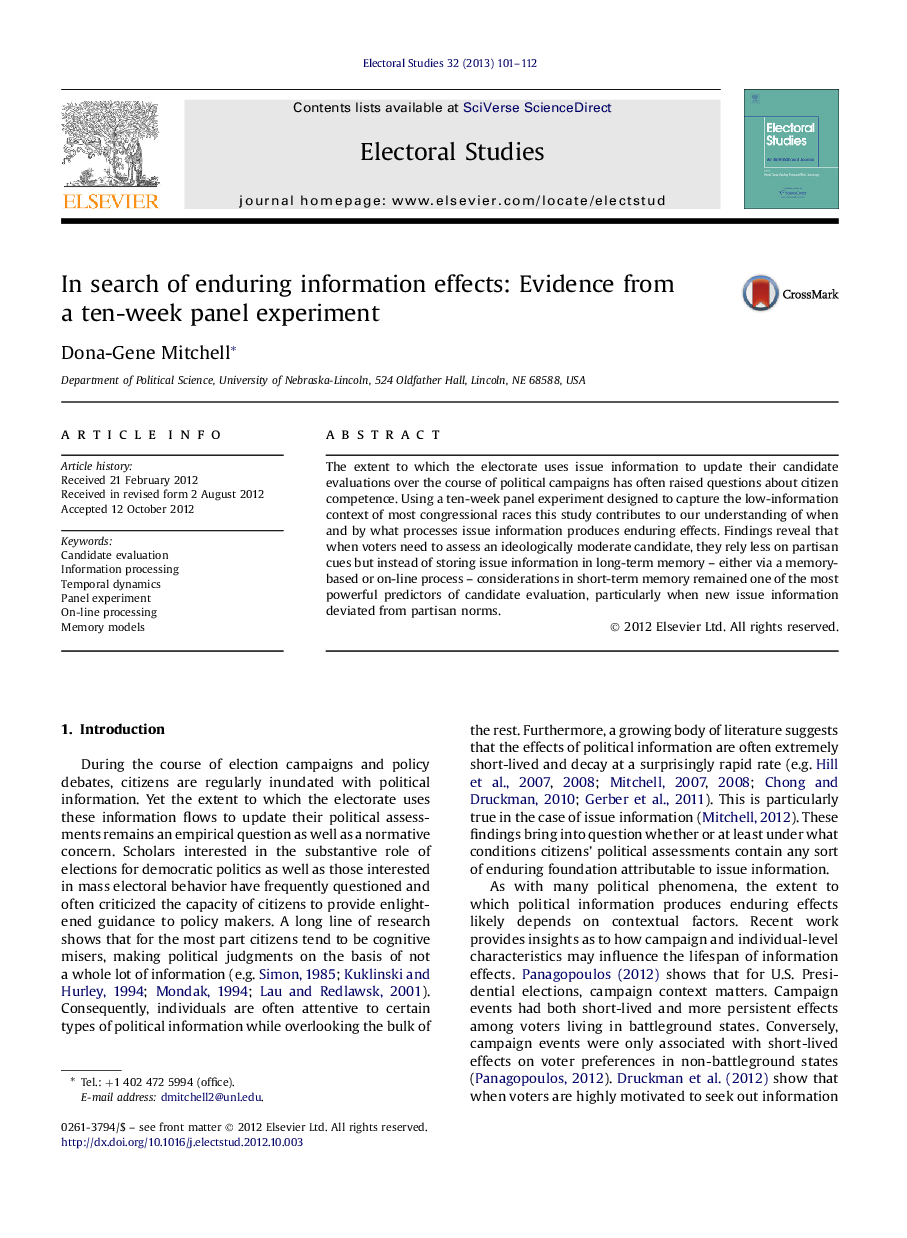| Article ID | Journal | Published Year | Pages | File Type |
|---|---|---|---|---|
| 1052162 | Electoral Studies | 2013 | 12 Pages |
The extent to which the electorate uses issue information to update their candidate evaluations over the course of political campaigns has often raised questions about citizen competence. Using a ten-week panel experiment designed to capture the low-information context of most congressional races this study contributes to our understanding of when and by what processes issue information produces enduring effects. Findings reveal that when voters need to assess an ideologically moderate candidate, they rely less on partisan cues but instead of storing issue information in long-term memory – either via a memory-based or on-line process – considerations in short-term memory remained one of the most powerful predictors of candidate evaluation, particularly when new issue information deviated from partisan norms.
► With a panel experiment, I assess information processing during campaigns. ► Support for enduring effects via on-line or memory based processes is limited. ► Findings reveal a limited role for enduring issue information effects. ► New issue information that deviated from partisan norms played a powerful role.
